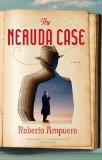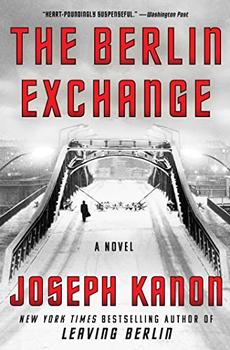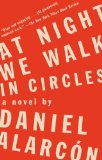Summary | Excerpt | Reviews | Beyond the book | Read-Alikes | Genres & Themes | Author Bio

A Novel
by Roberto AmpueroDoes poetry alone provide enough sustenance to feed the soul? Of what value is a life spent creating beautiful art without a true companion to share it with or someone to pass it on to? Fundamental existential questions may concern most of us at some time or other, but these questions haunt the great Chilean poet Pablo Neruda's last days. Set in the waning era of the Allende socialist experiment, The Neruda Case has the Nobel Laureate's ghost looming large on every page.
As the book opens, Neruda is host to a lively party at his beautiful house in Valparaíso. It is here that he meets Cayetano Brulé, an unemployed, wannabe detective. A Cuban immigrant to Chile, Cayetano has followed his lovely Chilean wife back to Valparaíso after she decides to become actively involved in her country's politics. Even though Cayetano is only just getting into the private eye business, Neruda's gut instinct tells him that Cayetano will help him find a link to something he's been missing in his life. His body slowly being eaten away by cancer, Neruda requests that the detective help track down an oncologist Neruda once knew in Mexico City. This oncologist, Angel Bracamonte, researched plant-based cures for cancer and Cayetano assumes Neruda is looking for one last chance at a cure for his disease.
As it turns out, Neruda is after something more elemental and personal - he is looking to connect with someone who just might be his daughter; Neruda and Bracamonte's wife had had a brief affair years earlier, which, he is told, may have resulted in a child. But due to inner failings, Neruda had rejected the claim. Now, years later, he is consumed by regret and wants to make peace with his daughter. To reach her though, Cayetano has to first track down the mother, and she proves to be an elusive target. Mexico City leads him to Cuba, then to East Germany and finally, Bolivia, before answers can be found. In each country, Cayetano absorbs the local flavor and moves his case forward with the help of local friends.
Even though The Neruda Case is painted as a mystery, there isn't much of one - or at least not much of a strong one. As Cayetano moves from one city to the next, it seems like his chase gets increasingly futile, and after a while, the reader might be forgiven for leaving the mystery trail cold and focusing instead on the element of travel. Roberto Ampuero is a very successful author, and this is his first book to be translated into English (by the equally talented author, Carolina de Robertis). He does a fantastic job with the settings; the descriptions of each city and place are gorgeous and are the highlight of the novel.
One of the other treasures of the book is an essay by the author in which he describes his childhood in Valparaíso, the "Jewel of the Pacific," growing up in Neruda's shadow. The book is the author's own homage to Chile's national treasure. "I strove to portray the Neruda of flesh and blood, the real human being with his grandeur and meanness, loyalties and betrayals, certainties and doubts, the poet who could love passionately and at the same time leave everything to embark on a new affair," Ampuero writes. This book achieves that objective beautifully - Neruda certainly comes through as a talented poet, but also as a real human being with failings and frailties. Ampuero shines a spotlight on Neruda's many affairs (each chapter of the book is named after one of his lovers), and the result is not pretty.
The story is set against the events of 1973 Chile when Allende's socialist years come to an end and are taken over by the brutal military commander and dictator, Augusto Pinochet. It is an interesting juxtaposition in which Neruda's accelerating decay, the mystery's final reveals, and the ultimate overthrow all come on the heels of one another in the final chapters of the book.
The Neruda Case is a fun summer book, a great introduction to the work of a beloved Chilean author, and is worth picking up for the terrific atmosphere alone. At a time when "staycation" has become a buzzword, The Neruda Case is the best kind of armchair travel there is. Ampuero's breezy read is an absolute winner. Mix yourself a pisco sour and dive right in.
To see images of the various locales mentioned in The Neruda Case, check out my Pinterest board.
![]() This review was originally published in The BookBrowse Review in July 2012, and has been updated for the
June 2013 edition.
Click here to go to this issue.
This review was originally published in The BookBrowse Review in July 2012, and has been updated for the
June 2013 edition.
Click here to go to this issue.

If you liked The Neruda Case, try these:

by Joseph Kanon
Published 2023
From "master of the genre" (the Washington Post) Joseph Kanon, an espionage thriller set at the height of the Cold War, when a captured American who has spied for the KGB is swapped by the British and returns to East Berlin needing to know who arranged his release and what they want from him.

by Daniel Alarcon
Published 2014
The breakout book from a prizewinning young writer: a breathtaking, suspenseful story of one man's obsessive search to find the truth of another man's downfall.
What really knocks me out is a book that, when you're all done reading, you wish the author that wrote it was a ...
Click Here to find out who said this, as well as discovering other famous literary quotes!
Your guide toexceptional books
BookBrowse seeks out and recommends the best in contemporary fiction and nonfiction—books that not only engage and entertain but also deepen our understanding of ourselves and the world around us.